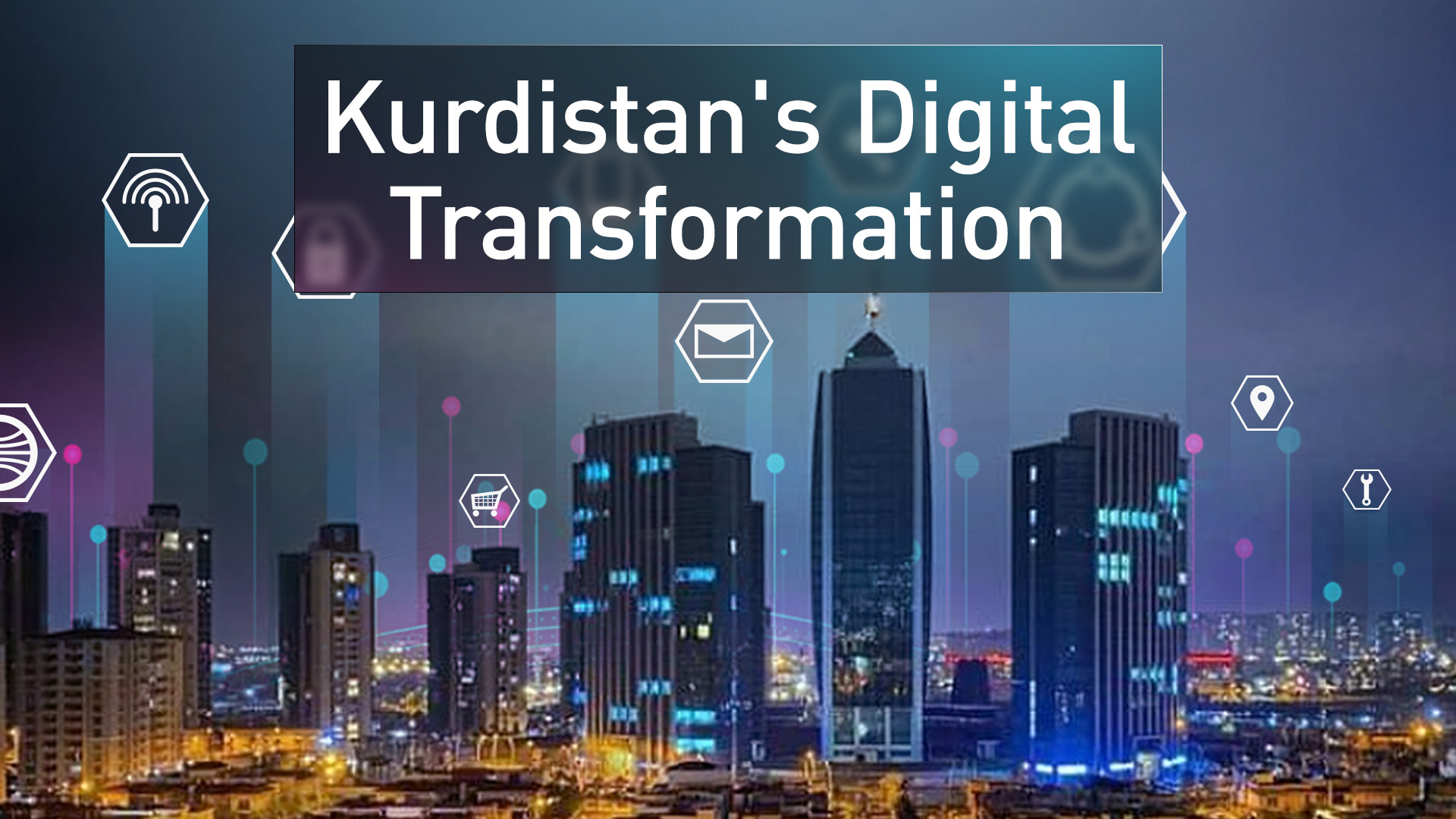Kurdistan Region Makes Bold Strides Toward Digital Governance in Ninth Cabinet
The KRG’s e-governance push under its ninth cabinet marks a major modernization milestone, boosting efficiency and transparency. This digital shift aims to strengthen public trust and establish Kurdistan as a Middle East leader in tech-driven governance.

By Ahora Qadi
ERBIL (Kurdistan24) – In alignment with global trends in digital transformation, the ninth cabinet of the Kurdistan Regional Government (KRG) has taken significant steps to digitize its institutional operations, initiating dozens of pioneering projects aimed at modernizing public administration, improving service delivery, and enhancing fiscal transparency.
A Strategic Push for E-Government
On Thursday, Hiwa Afandi, Head of the Information Technology Department at the KRG, told Kurdistan24 that the government had made remarkable progress in replacing outdated bureaucratic structures with integrated digital platforms. He stated that the transition has successfully contributed to reducing administrative complexity, cutting unnecessary expenditures, and improving government revenues.
Afandi emphasized that the shift to digital systems is not only a modernization effort but a strategic priority aligned with the government’s broader agenda under the slogan: “Stronger Kurdistan.”
Among the most notable initiatives implemented by the ninth cabinet are more than 24 major digital transformation projects, including:
-My Account initiative: A digital platform facilitating citizen engagement with government assets, backed by $900,000 in funding for participants.
-Digital Border Control System: Incorporating an electronic services portal, request management tools, and statistical border data to enhance transparency at entry points.
-Business and Trade Registry System: Designed to digitally record traders, business owners, and commercial licenses.
-Citizens' Complaints System: In order to convey the voice of citizens and their complaints.
-KRG Asset Management System: Tracks and manages external government assets digitally for greater accountability.
Digital system for managing pension schedules: A System for Managing the Salary Schedule of the Kurdistan Regional Government Employees The purpose of this system is to reorganize the process of digitally preparing the salary schedules among the public.
Building Infrastructure for a Digital State
To support this transition, the KRG has established several foundational platforms, including:
-KRD Domain Initiative: The Kurdish domain represents the Kurdish people in the world.
-KRG’s Official Portal (GOV.KRD): Official website of the Kurdistan Regional Government
-Information update system: A system used between all government institutions and the Media and Information Office to send their news and announcements for publication on the official website of the Kurdistan Regional Government.
-Runaki Project System: A KRG-wide performance monitoring platform for Runaki project
-Population Information Systems: Population Information System, which consists of two other systems, Digital Identity & Digital recognition.
-Central Government Data Center: An infrastructure that is generally a central location for collecting and delivering government digital services.
-KRG Data Center: The main hub for storing and processing government data.
-Administrative systems that conduct citizens' affairs electronically: Digital forms, Identify taxi driver, Management of operational units, Managing documents
Citizen-Focused Systems
The ninth cabinet also introduced systems that directly serve citizens:
-Digital Systems of the Ministry of Education : E–school, E–evaluation, E–Library, E–Education, E–Family, E–Training, E-Follow-up. Where these systems identify the relationship between the student's family and the teacher, the school and the Ministry of Education
-Electronic mails: All documents from the General Directorate of Education reach the Ministry electronically and do not rely on manual mail.
Funding and Institutional Oversight
The KRG's digital transformation is over-sighted by the Ministry of Information and Technology, ensuring the proper implementation of data handling, reporting, and cyber security mechanisms. The system also includes frameworks for smart reporting, secure communication, and data-driven governance.
Strategic Objectives
The core goals of the transformation include:
-Reducing Bureaucracy: By replacing manual procedures with efficient digital alternatives.
-Enhancing Transparency: Through accurate, real-time tracking of financial and administrative processes.
-Improving Public Services: Providing fast, reliable, and citizen-focused services through online platforms.
-Cutting Costs: Eliminating redundant expenses tied to paper-based or inefficient operations.
-Increasing Revenues: Enabling better tax collection and financial monitoring through intelligent systems.
A Model for the Future
Kurdistan Region’s shift to e-governance under the ninth cabinet represents a significant leap forward in public sector modernization. As these digital platforms continue to evolve, officials expect the transformation to further enhance administrative efficiency, strengthen public trust, and position the region as a leader in digital governance in the Middle East.
With continued investment in digital infrastructure, the Kurdistan Region appears poised to usher in a new era of smart governance, responsive public service, and institutional transparency.
